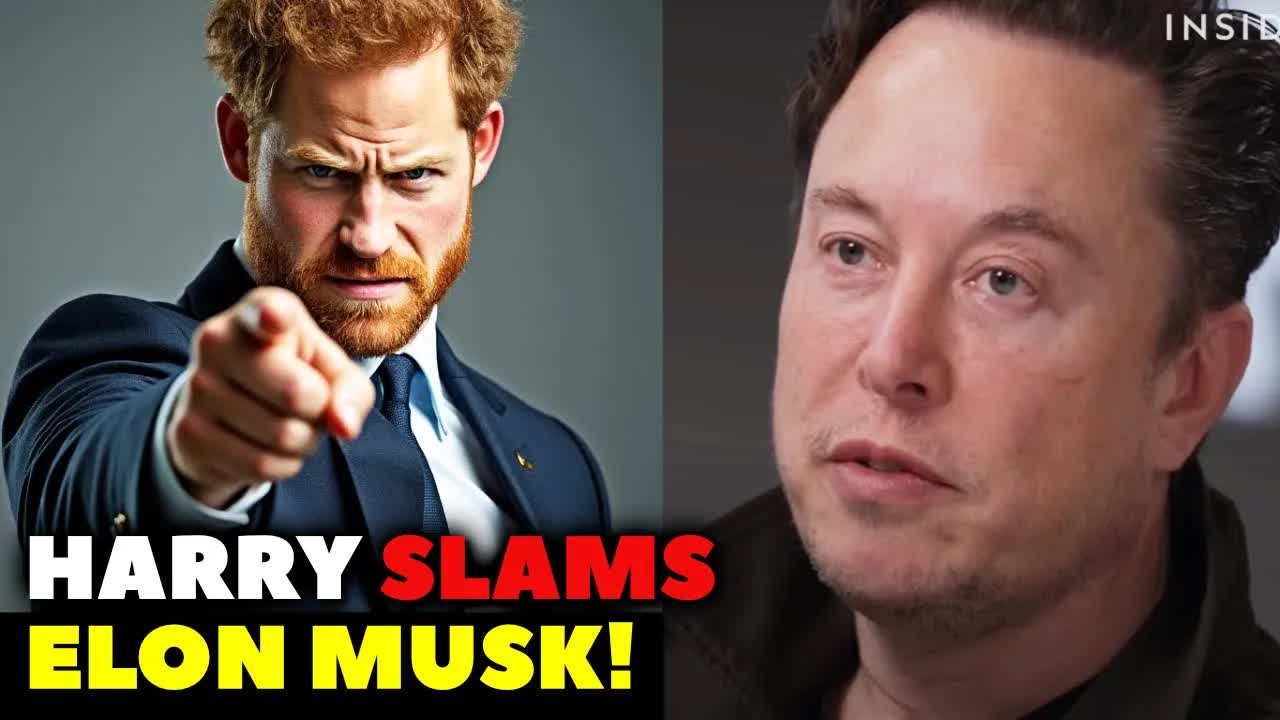Recently, Prince Harry has sparked a wave of discussion with his comments that many perceive as a thinly veiled jab at tech mogul Elon Musk.
The royal’s remarks, made during a media appearance, have raised eyebrows, especially as they seem to link Musk’s influence on social media to the recent riots in the UK.
This assertion, along with Harry’s ongoing security concerns while traveling abroad, has led to a flurry of criticism and debate about the responsibilities of public figures in the digital age.
In his statement, Prince Harry suggested that the information shared online can quickly spill over into real-world consequences.
He emphasized the need for individuals with influence to take greater responsibility for the content they share.
While there is merit in addressing the dangers of misinformation, many, including royal commentator Helena Shard, argue that Harry’s sweeping generalizations may be misguided and potentially harmful to the royal family’s reputation.
Shard elaborated on her concerns during an interview with GB News, claiming that Harry tends to exaggerate situations, painting them as catastrophic.
She believes that his perspective might not only misrepresent the realities of online discourse but also mislead the public regarding the complexities of social media dynamics.
According to her, Harry seems to position himself as a self-appointed guardian against misinformation, which, she argues, he is not adequately qualified to do.
Harry’s comments specifically targeted platforms like X, previously known as Twitter, where he implied that Musk should bear more responsibility for the content shared on his platform.
However, critics point out that social media companies employ various filters and reporting mechanisms to manage harmful content.
This raises the question: is it fair to hold an individual responsible for the actions of a vast network of users?
As the conversation shifts to the topic of disclaimers on social media, it becomes clear that many users are trying to shield themselves from potential repercussions.
Some have begun adding disclaimers to their profiles, stating that they do not intend to spread false information or incite hatred.
Yet, these disclaimers may be little more than a futile gesture.
Just as one cannot absolve themselves of theft by declaring their intention not to steal, a disclaimer does not erase the impact of a harmful post.
The legal landscape surrounding online speech is indeed murky, particularly in the UK.
Recent trends indicate that statements that might have previously gone unpunished are now leading to prosecution and, in some cases, prison sentences.
This shift has left many wondering where the boundaries lie when it comes to expressing opinions online.
It’s crucial to differentiate between genuine discourse and incendiary rhetoric.
Expressing disagreement with government policies, for instance, can fall within the realm of protected speech, as long as it is framed as part of a constructive dialogue.
However, if a post can reasonably be interpreted as inciting violence or hatred, the legal ramifications could be severe.
Harry’s situation is further complicated by his own travel choices.
While he expresses concern for safety in the UK, he recently embarked on a trip to Colombia, a country with its own security challenges.
This contradiction raises questions about the sincerity of his claims and whether he fully grasps the implications of his words.
As public figures navigate the tricky waters of social media, the responsibility they bear grows heavier.
Harry’s comments may reflect a genuine concern for the impact of misinformation, but the way he articulates those concerns can lead to misunderstandings and backlash.
It’s essential for influential individuals to communicate clearly and thoughtfully, especially when discussing sensitive topics.
The evolving nature of online communication means that everyone, including royals, must tread carefully.
The lines between free speech and harmful rhetoric are increasingly blurred, making it vital for all users to consider the potential consequences of their words.
As we continue to grapple with these issues, it’s worth pondering: how can we foster a healthier discourse in the digital realm without stifling free expression?
Ultimately, Harry’s comments serve as a reminder of the complexities involved in discussing the intersection of social media and real-world consequences.
As we reflect on his statements and their implications, it’s clear that the conversation surrounding online responsibility is far from over.
What are your thoughts on Prince Harry’s remarks?
Do you believe he is justified in his criticism of Musk, or is he overstepping his bounds?










